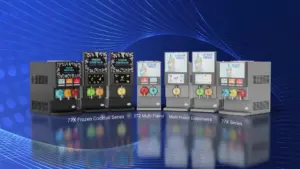Can NFT Restaurants Elevate the Dining Experience?
What a restaurant can do and be is shifting. In an increasingly digitized world, it’s pertinent for the success of a restaurant to continue to be on the frontier of technology
Barbara Castiglia of Modern Restaurant Management says, “What restaurant owners and operators should be thinking about for now and for the future is what we’re kind of calling the cryptoculinary connection.”
Digital aspects of the food industry include NFT, bitcoin, cryptocurrency, blockchain, and digital wallets. These aspects are bringing in not just a new way to pay but also a myriad of possibilities for the industry.
Popular chains like Starbucks, Subway, Pizza Hut, and Burger King are all using future-forward thinking through digitizing aspects of their brand. What this offers is authenticity, creativity, and connectivity, “It’s kind of offering a new experience and a new way for restaurants to create a loyal customer and to engage with new customers where they are,” said Castiglia.
Blockchain and cryptocurrency are prevalent in the food industry supply chain as well, helping to power connections and build sustainable trust throughout the industry, using a decentralized, secure record system.
In order to continue to grow and succeed, restaurants need to be future-forward in elevating the dining experience, like making “collectible culinary concoctions,” noted Castiglia. Starbucks announced in their Q2 earnings in 2022 the aim for the brand to make digitized assets available using Web 3.0, an upcoming generation of the internet aimed at making the digital world more viable in all functions.
Embracing the potential for a digitizing world will not only help prepare the restaurant world for success well into the future but also help grow and create new possibilities in a burgeoning arena.








